
When Should I Book Travel Insurance?
Travel Insurance
Hey there! So, I just got back from a weekend hike, and let me tell you, I didn’t plan for half the things that happened. It got me thinking about travel insurance and how it’s like having a backup plan for those ‘oops’ moments. Speaking of which, when should you book travel insurance? Let’s dive in!
You can get money back from your travel insurance if you lose or have your things stolen, like your phone, computer, or camera. This insurance also covers hospital bills if you get sick or hurt while traveling. It also gives you important support when things go wrong, like when your trip gets canceled or you have to go home because of a family problem.
A lot of people don’t know how cheap flight insurance can be. Just a few dollars a day will cover everything. People usually have insurance for other parts of their lives, like their homes and cars. But trip insurance is just as important for protecting against the unexpected. Without it, you put yourself in danger for no reason.
Perhaps you’re thinking, “I’ve been on trips without insurance before and been okay.” But think about how many times you’ve driven without getting into a crash. In the event of an accident, insurance helps keep costs down. In the same way, medical emergencies abroad can cost a lot more than fixing your car, so getting trip insurance is a smart move.
Travel insurance is very helpful and gives you peace of mind. To make your trip as stress-free as possible, groups like Trawick International can help you find a good doctor, get back home quickly in case of an emergency, replace your belongings if they get lost, and pay for medical bills or delayed flights.
Understanding Travel Insurance
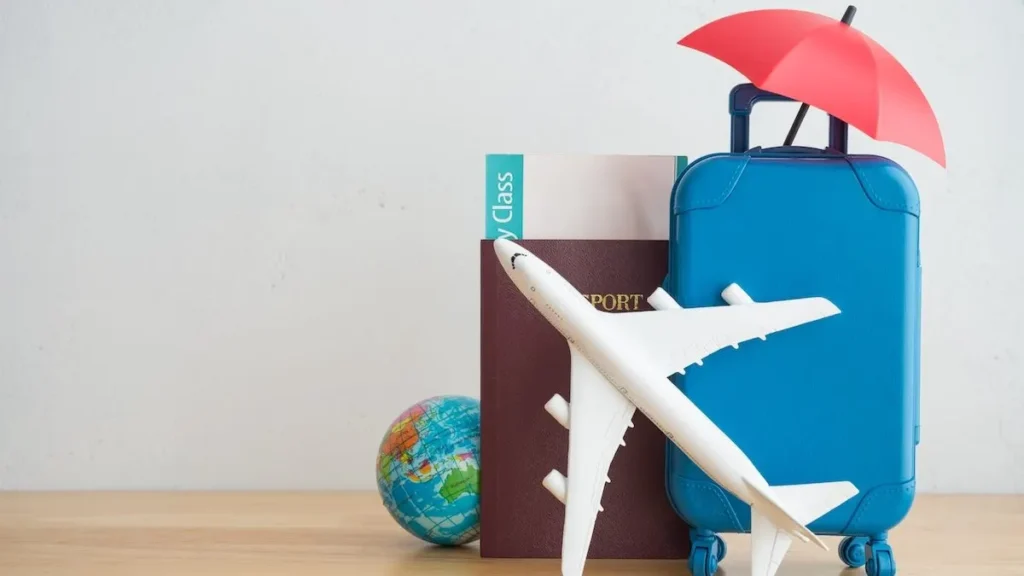
Travel insurance protects you financially in case of unplanned events like getting sick, hurt, having an accident, or having to wait for a train. More often than not, this covering makes up 4% to 10% of the total cost of the trip. This means that insurance for a $10,000 trip would cost between $400 and $1,000.
Your age, where you’re going, the length of your trip, and the cost of it all affect how much you pay for travel insurance. There are also policy riders made just for sports, foreigners, and business travelers.
You might already have trip insurance through your credit card, insurance for your home or rent, or both. You can find out more by asking your insurance agent about your current trip coverage and by asking your credit card company if they offer any travel-related rewards. A lot of travel credit cards come with free travel insurance when they are used to book hotels, cars, or public transportation.
What Is Travel Insurance?
Travel insurance is helpful for both domestic and foreign trips because it protects you financially against a lot of different kinds of losses that can happen while you’re away. Great travel insurance can help you pay for these things, whether you get hurt in Ankara, lose your bags in Berlin, or have to cancel your trip to Florida.
Points To Keep In Mind
When Should You Buy Travel Insurance?
Trip insurance is usually bought soon after booking a hotel, flight, and other trip plans. But what does “shortly” really mean?
Making Early Reservations With Big Delays Before Traveling
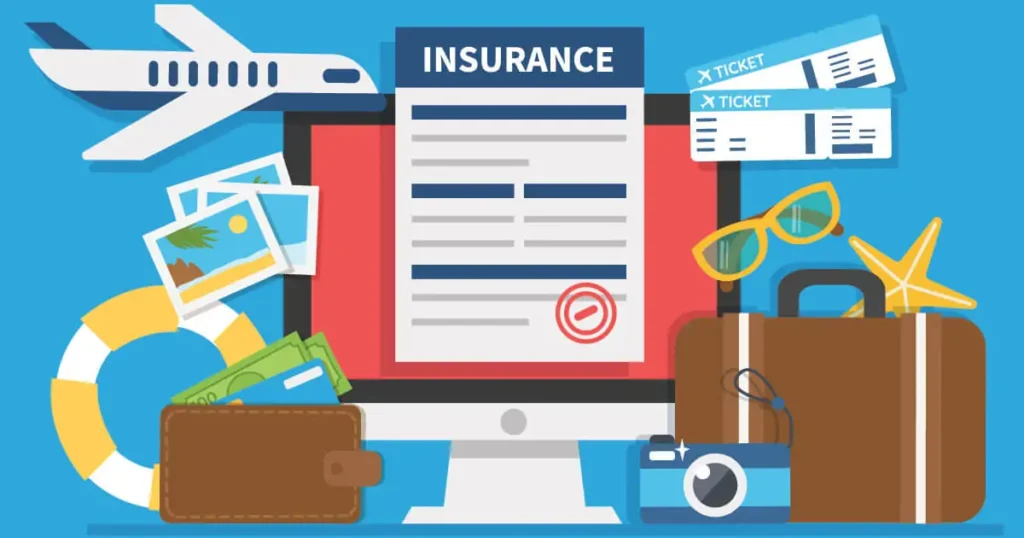
When you should buy holiday insurance depends on how long you have to plan your trip. You can put off getting travel insurance if you plan your trip several months ahead of time. This plan works because cancellation rules for early reservations are usually pretty flexible, so you can back out without having to pay a lot of money. In this case, you may choose to briefly not have insurance.
Less Wait Time For Bookings Made The Day Before Travel That Was Made Late.
Not many people plan their trips months in advance. Instead, as the trip date gets closer, they make their plans even more firm. In these situations, you need to get travel insurance as soon as possible, preferably within a few days of booking your flights and lodging. The reason is simple: getting a covering before you leave will help you. Compare different policies before choosing to make sure you get the best travel insurance plan with the most coverage and extra features.
Travel insurance policies usually have terms that let you cancel your trip. This feature is very helpful because it lets you get money back if you have to stop your trip for a reason that is covered.
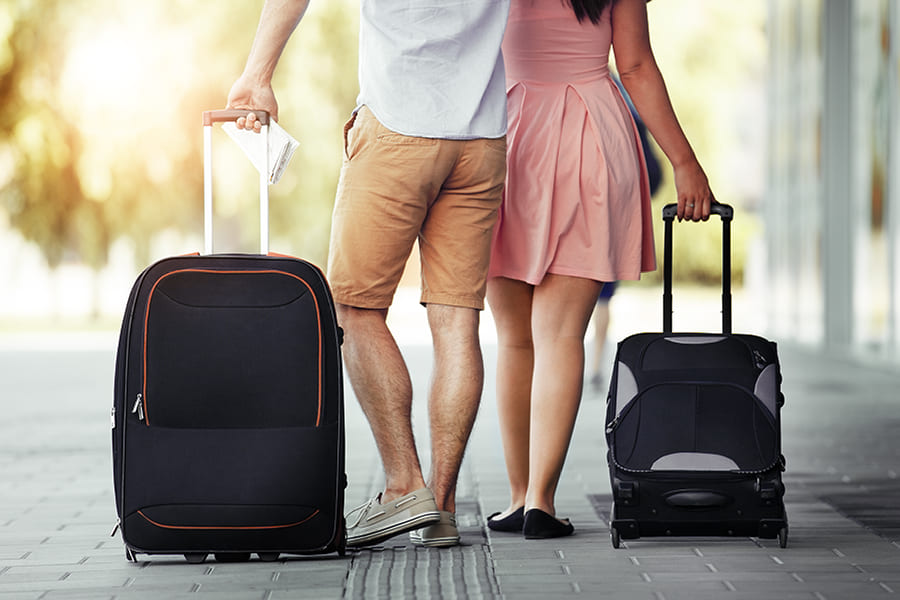
Frequent Vs. Infrequent Travelers
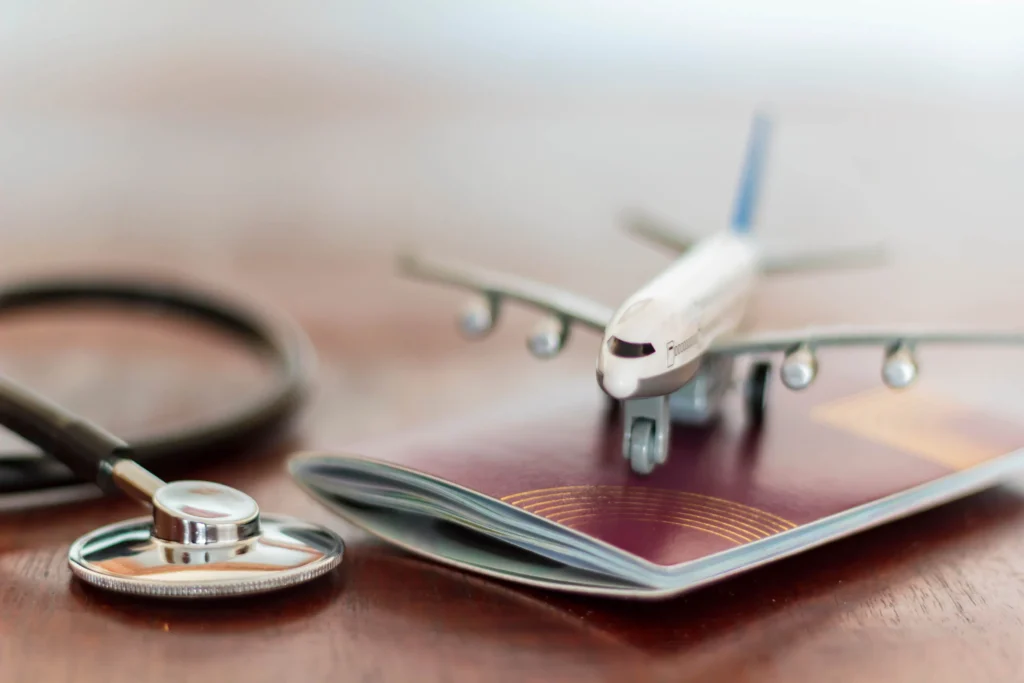
Depending on how often you travel, you will need different types of protection.
- Frequent Travelers: For people who plan to take many trips in a year, a yearly plan that covers many trips of up to 90 days each is often the best choice.
- Occasional Travelers: A single-trip insurance plan is all you need if you only travel once or twice a year. It is very important to know what the coverage covers, what it doesn’t cover, and what limits there are on levels of coverage and situations.
What Does Travel Insurance Cover?
A lot of the time, travel insurance protects your health, money, and belongings. Take the following benefits into account when choosing insurance.
Cancellation Of Trip
If you have to cancel your trip because of a covered event, like illness, injury, the death of a family member, losing your job, being sent to war, or getting called up for jury service out of the blue, trip cancellation coverage will pay back non-refundable costs you already paid for, like plane tickets, hotel rooms, rental cars, tours, and cruises.
You may also be able to get money back for cancellations if bad weather, natural disasters, or airline strikes keep your carrier from getting you to your location for at least 24 hours.
Delay In Travel
If your trip is delayed because of bad weather, plane maintenance, or political unrest, travel delay coverage will pay for your local transportation, lodging, and meals.
Megan Moncrief, who works for Squaremouth, said, “Travelers must be delayed for the minimum amount of time specified in their policy to qualify.” Some rules are more open-ended and allow wait times of any length, while others require wait times between three and twelve hours.
The daily payout limits are usually between $150 and $250 per passenger, and the total insurance limits are between $500 and $2,000. Don’t forget to keep your papers so that you can get your money back.
The Trip Was Cut Short
If you have to cut short your trip because of illness, an accident, or a family situation, your insurance may pay for the costs you lost that you can’t get back.
Delay In Baggage
If your bags are delayed for a certain amount of time, your insurance should cover things like clothes and toiletries that you need. Usually, this benefit is capped at a certain amount per day or year.
Loss Of Baggage
That being said, even if airlines are forced to pay for lost luggage, travel insurance may include more coverage. It might cover your papers and bags if they get lost, stolen, or damaged when you get there, for example.
This means that your insurance might not cover things like cash and expensive jewelry.
Costs Of Medical Care And Emergency Removal
If you go overseas, your regular health insurance might not cover you. Hospital bills and other care costs should be covered by travel insurance. The provider can also make sure that you get treatment in places that are licensed to do so in the U.S. and help you coordinate your care.
What Does Travel Insurance Not Cover?
Some things that travel insurance doesn’t cover are listed below, but this list can change from company to company.
If you buy a Cancel For Any Reason (CFAR) coverage early enough, usually 14 to 21 days before your trip, you can cancel for any reason, not just the ones above. On the other hand, cancellations must be made at least 48 hours before the trip. Daniel Durazo from Allianz says that CFAR plans can make your insurance premiums go up by about 40% while still covering 50% to 75% of your travel costs.
If you have a pre-existing condition protection on your insurance, it may cover a lot of long-term health problems. To be qualified, you must buy the coverage between 14 and 21 days before your trip, pay for any nonrefundable costs, and be in great health when you go. But the permission doesn’t cover things like drug abuse, mental health problems, dementia, and pregnancy.
When Is Trip Insurance Worth It?
Getting travel insurance could be a good idea for many reasons, such as protecting your health, your belongings, and the trip fees that you can’t get back.
When To Get Cancellation And Interruption Insurance For Your Trip
If canceling or delaying your trip will cost you money on things like flights, hotels, rental cars, or events, you might want to buy travel insurance that covers these costs. This kind of insurance will pay back prepaid reservations if your trip has to be canceled for a covered reason.
If you are planning a trip to a place where weather problems, like hurricanes, are common, travel insurance can protect your booked plans. Several rules also say that people must leave quickly in case of an emergency. But if you buy trip insurance after a storm is expected, it might not cover you.
When To Get Covering For Bags That Get Lost Or Are Late
You might want to get baggage delay insurance in case your checked luggage gets lost or is delayed while you’re flying. This insurance pays for things you need to buy while you wait for your bags, like clothes, medicine, and toiletries. If you lose or have your bags stolen, lost luggage insurance will pay you up to a certain amount.
If you are only taking a carry-on, you might not need this kind of insurance.
When You Should Buy Travel Medical Insurance
Most U.S. health insurance plans cover travel within the U.S., but some plans, like Medicare, may not cover travel to other countries. Some doctors in the area might not take your health insurance, even if it covers you in some places around the world. You won’t have to pay cash and then try to get your money back if you buy trip medical insurance.
When To Think About CFAR Coverage
Most travel insurance policies don’t cover cancellations for reasons that aren’t covered, like changing your mind or not wanting to travel. In this case, Cancel For Any Reason (CFAR) covering is helpful.
Please let CFAR know at least two to three days before your flight if you need to cancel for an unplanned reason. They will reimburse you for 50–75% of your nonrefundable travel fees. You have a certain amount of time to get CFAR after making your first trip deposit, which usually takes 14–21 days.
For example, CFAR can help you get some of your money back if you plan a trip with a partner and then change your mind or break up with them before the trip.
If You Have Credit Card Coverage, The Same Applies.
Even if your credit card has trip insurance, you may discover that the limits are too low. Purchasing a complete travel insurance package or separate travel medical coverage may provide you with greater protection in these circumstances, particularly if you experience a medical emergency while traveling.
How Travel Insurance Works?
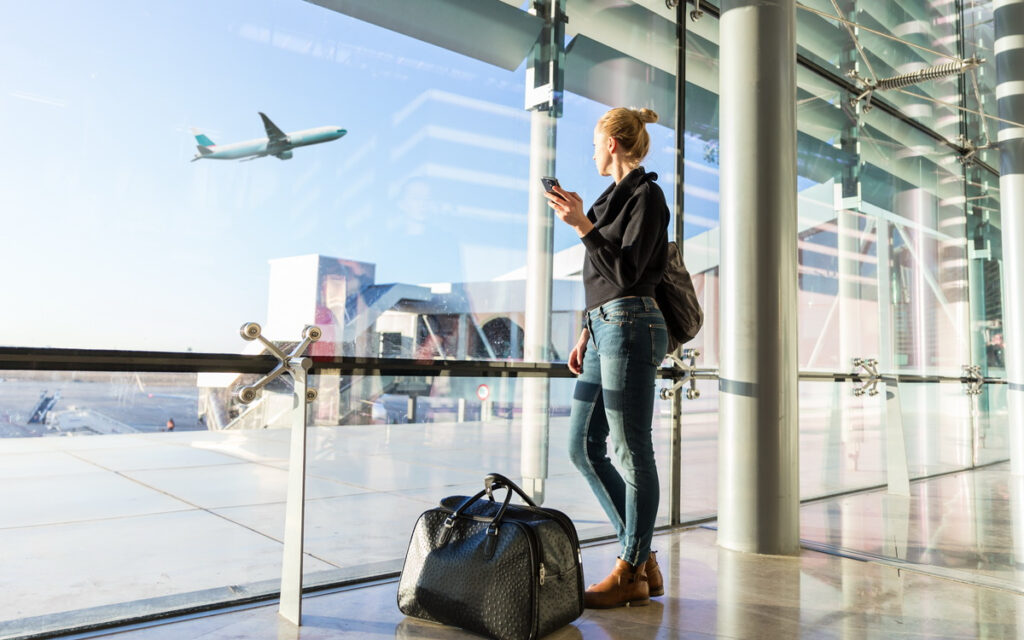
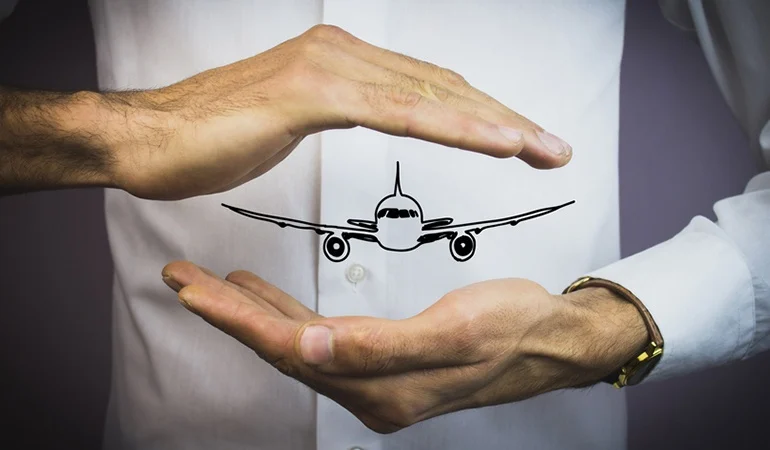
Insurance companies or travel providers like airlines and cruise lines when they book their flights, hotels, or rental cars. Some of the most well-known travel insurance companies are AIG Travel, GeoBlue, Nationwide, and Berkshire Hathaway Travel Protection.
Travelers usually get insurance soon after booking their flights, hotels, events, ground transportation, or rental cars. For some plans to give you the full benefits, you need to get coverage right away after booking. These terms should be kept in mind when you are thinking about getting trip insurance.
Coverage, Both Main And Secondary
You can get both main and extra benefits with travel insurance. If you have primary coverage, your travel insurance company will pay you directly instead of making you file a claim with another company. This keeps your rates from going up. To get secondary coverage, you must first file a claim with any other insurance that applies, like your auto insurance for a damaged rental car or the airline for lost bags.
Conditions Of Coverage: Policies usually list restrictions on who can get coverage. Claims must be in line with the types of benefits listed in the policy. Lost baggage insurance usually covers things like personal items, prescription drugs, credit cards, and trip documents like passports and visas. Policyholders may have to tell the cops about the loss or theft to get coverage.
Limits On The Coverage Of The Policy
The coverage limit is the most money that each insurance will pay out in reimbursements. For instance, you might only get $500 back per bag if you can’t show receipts. The limits are lower for valuable things like gold or electronics. Some plans may require you to pay a deductible before they will pay the rest of your claim, up to a certain limit.
Not Part Of It
Certain situations or conditions that insurance does not cover are called “exclusions.” Losses caused by animals, bicycle coverage, medical devices like hearing aids, keys, tickets, or being taken away by customs officials are some examples of things that some policies don’t cover. Also, people with pre-existing illnesses often can’t get travel medical insurance unless they buy it within a certain amount of time after booking their trip, usually one to two weeks.
You can choose the best travel insurance plan for your needs and be sure you are fully covered while you are abroad if you read and understand these words carefully.
Conclusion
FAQ
This makes me think of a big question: when should you get travel insurance? The simple answer is as soon as the traveler purchases their flight tickets. This is because specific insurance policies also offer protection for canceled or delayed trips for specific reasons. This can protect the policyholder from having to bear loss on the non-refundable deposits.
These days, it’s easier than ever to buy insurance, and you can even do it from home. Keeping track of all the things that need to be done at once is often easier and makes sure that everything gets done on time. But a lot of tourists put things off until the last minute. No matter what, you should get travel insurance as soon as possible, ideally before you book your flight. If you buy earlier, you’re better protected, especially if your trip gets canceled or something unexpected happens before you leave. A lot of the time, getting travel insurance as soon as possible is a good idea because it can help you get your money back if your plans change.
The best time to purchase your travel insurance is as soon as you have booked or finalized your holiday. You should make sure that your insurance covers you for:
- The destination/s you will be visiting.
- Your general level of risk depends on what you will be doing on your trip.
- When planning a trip, there are many things to think about. This includes your planned luggage, personal items, clothes, and any extra gear you might need for some activities.
- It’s important to make sure that any jewelry, electronics, or important papers you bring on your trip are safely packed.
- Think about the things you want to do while you’re traveling, like sports, sightseeing, or adventure trips. Some of these may need special gear or plans.
- To make sure the trip is safe and enjoyable, think about your unique needs, such as your age, fitness level, and any health problems you already have.
The travel start date is the day you physically leave your house for your trip. Typically, it’s also the day that your Travel Insurance should begin.
Any loss that happens after you leave your home is called a “post-departure benefit.”
Here are some of the main perks that your policy may cover after you leave:
- Trip cut short, travel delayed, and link lost
- Loss, damage, or delay of luggage
- Insurance for health
- Medical Removal: Death and disability by accident
- Help with travel, damage to hire cars, and evacuation without medical care.
- Please keep in mind that not all of these perks come with every policy. You can file a claim for any event covered by the insurance that happens after your vacation starts.
A USA travel insurance policy, whether multi-trip or single-trip, typically provides coverage for the following:
- Emergency Medical Care And Repatriation Costs: if you fall ill or have an accident, the policy should cover the cost of medical treatment. The American healthcare system is one of the most expensive in the world and it’s heavily privatised, so consider looking for policies with at least £5m of medical expenses cover.
- Loss Or Theft Of Passports And Other Personal Items: If your clothes, electronics, or passports get lost, stolen, or broken while you’re on the road, your insurance should cover it.
- Holiday Cancellation Policy: If you have to stop or delay your trip because of something out of your control, this policy may help pay for some of your vacation costs. It is important to buy travel insurance as soon as you decide to go on a trip so that you are covered right away.
- Problems On The Way: If you have to stop your trip, your travel insurance may pay for the costs. Make sure that any links that are missing are covered by checking your coverage.
Details of coverage may be different based on the plan you choose and the insurance company you use. So, before you buy insurance, you should carefully look over what it covers, how much of a deductible you will have to pay, and what it doesn’t cover.

